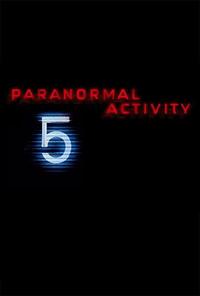The Latin prefix para means beside or beyond. Like the word supernatural, paranormal refers to any phenomenon that eludes explanation through normal science or conventional wisdom.
Paranormal can be a misleading term because what is ‘normal’ is open to debate and subject to change.
At what precise point, for instance, does intuition or insight become as ESP or clairvoyance?
Funnily enough, the US courts still provide an option for placing the right hand on the Bible while taking oath—and the Bible is a book that invites believers to enjoy eternal rest in the paranormal realm of heaven.

Likewise, more recent versions of the American psychiatric diagnostic manual (DSM-x) accept religious beliefs that include the paranormal, providing the religion is well established and actively practiced within a given culture. Individual beliefs, however, are far more suspect, which speaks volumes about the psychiatric worldview.
Traditional religious persons tend to be wary of the paranormal, saying that it deals with magic, evil spirits, the occult, divination and demonic realms. Heaven, on the other hand, is said to be a faith-based concept denoting God‘s realm. So traditionalists tend to use the word supernatural instead of paranormal, as if that resolves all ambiguity about what is good and not good in the uncharted world of the spirit.
Many who have had unusual experiences or who believe they have psi abilities probably do not report these for fear of repercussions. They would not want to be ridiculed, bullied, harassed, stigmatized, marginalized or perhaps, worse, rough-handled by a medical establishment that leans toward what C. G. Jung called “medical materialism.”¹

Journalism: billnwmsu / Will Murphy
We can only wonder just how many genuine paranormal encounters go unreported. But one thing seems pretty clear: The data is questionable.
Social credibility bias, misreporting and unreliable statistics compel us to ask whether ‘normal’ and ‘paranormal’ are relative instead of absolute categories. Just as postmoderns deconstruct the idea of the ‘natural,’² the difference between normal and paranormal is relative to cultures and subcultures.
Cultural biases can be subtle but also pervasive. Bias often goes unrecognized because we are blind to our prejudices, expectations and limitations. And despite what many will say on either side of the fence, this happens with both kinds of believers—believers in the paranormal and believers in the normal sciences.³
—
¹ Things may be slowly changing for the better. But Jung speaks clearly about mid-20th century biases. See http://www.collectionscanada.gc.ca/obj/s4/f2/dsk3/ftp04/nq21958.pdf p. 143.
² This approach was popular in the mid-1980s and 90s, just before widespread acceptance of the LGBTQ community.
³ Some call for a new kind of relational science that could be applied to paranormal accounts. See http://www.collective-evolution.com/2015/10/22/the-top-8-paranormal-scientific-studies-what-we-can-learn-from-them, “Daniel Siegel in conversation with Paul Zak” on Vimeo https://vimeo.com/182895570 and http://www.teemingbrain.com/2012/07/23/liminality-synchronicity-and-the-walls-of-everyday-reality/
† Re title: https://thenface2face.wordpress.com/what-does-now-we-see-through-a-glass-darkly-mean/
Related » Atlantis, Clairaudience, Clairvoyance, Dreams, Empath, Guiley (Rosemary Ellen), Luke Skywalker, Randi (James), Remote Viewing, Science journalism faces media changes, emerging discoveries, Seer, Talbot (Michael), Tarot, Watts (Alan)


Paranormal Phenomenon
Great post here on Paranormal phenomenon.
cosmic force telepathy
learn telepathic techniques
<tags>paranormal phenomenon</tags>
…
LikeLike
I’d add that “paranormal phenomenon”, similarily like “primitive culture” is only the way of expressing certain natural occurences from the perspective of certain civilization. Being member of describing civilization makes one realizing that its truth is just a perspective very difficult to happen but not impossible.
LikeLike
Thanks very much for your comment. Can you help me clarify something?
“Being member of describing civilization makes one realizing that its truth is just a perspective very difficult to happen but not impossible.”
Do you mean it is difficult but not impossible to realize that it is just a perspective? Or do you mean that the actual occurrence of miraculous events is very rare but not impossible? I think you mean the first, but I am not 100% sure… 😉
LikeLike
You’ve read and understood my intention well. First meaning, which can also be true, would be my statement only without giving a second example, placed between quotation marks,be happy
LikeLike
This reminds me of Wittgenstein, who at one point in his life seemed to indicate that language cannot fully express what we mean to say. So, consider this hypothetical scenario: Let’s suppose that person X reads your mind with 100% accuracy. Person X then tells you exactly what you were thinking. Would you call this (a) normal (b) paranormal (c) natural (d) supernatural (e) some combination of a, b, c, and d (f) something other than a, b, c, d, and e?
🙂
LikeLike
I’m reading recently Alexandra David-Neal “With Mystics and Magicians in Tibet” and I must admit that she was allowed to learn a lot about Tibet as non native at her times. She describes plenty of useful conversations that were wordless points out quite precisely the partial role of mind in a whole. Therefore fact that you were raised on tests doesn’t mean that people all over the world follow the same pattern of perceiving and articulating selves non have a need to express selves such way, while achieving freedom and happiness. I know internet is quite disabled in sharing other patterns than minds, therefore one must remember about ability to bend towards the message not the pure meaning itself. Feel free to experience life without your patterns presented in my blog and I’m sure that even though as an intelligent person you won’t have problems with inventing names that do describe my writing precisely – experiencing what’s behind the meaning will remain beyond and entirely subjective.
LikeLike
Yes, I guess what you’re saying is that we all have a subjective interpretation. And try as we might to communicate, one person’s perceptual and interpretive ‘grid’ or ‘pattern’ will probably always differ from another’s. Still, I believe that sometimes it can be useful for these grids/patterns to try to understand one another (as different as they may be). One grid/pattern can learn from another, no? Unless one thinks one already knows it all… And to that I’d say, even the human Jesus didn’t know everything (while on Earth).
Humility. That’s the key.
LikeLike
I believe that a little miracle of multicultural understanding can be witnessed here. Be happy.
LikeLiked by 1 person
Telepath phenomena happens around me and could be proved repeately. For more information please visit my blog radwind.wordpress.com
LikeLiked by 1 person
Like this post of yours about paranormal… I am a paranormal expert too
http://www.thekenhudnallshow.com
LikeLiked by 1 person
This is a fascinating topic. I have only had one truly paranormal experience in my lifetime and am open minded to a variety of possibilities about our very own existence, which has yet to be fully deciphered by science nor religion.
Check out my most recent blog on the subject: http://robertocguerra27.wordpress.com/
LikeLiked by 1 person
Wizards young and old,seductive witches, and good-looking vampires —these are just someof the supernatural characters that have invadedthebook, movie,andvideo-gameindustries .What is the appeal? “Belief in ghosts hassoared inrecent decades, from one in ten Americans to one in three,”writes sociology professor Claude Fischer. “Young Americans are about twice as likely as old Americans to say they have consulted psychics, believe in ghosts, and believe in haunted houses.”
One report states that “anywhere from 25percent to 50 per cent of people worldwide believe in ghosts, and ghosts feature prominently in the literature of most cultures. ”And a survey done in the United States by sociology professors Christopher Bader and Carson Mencken“ revealed that a staggering 70 to 80 percent of Americans strongly believe in at least one type of paranormal activity.”
True, some supernatural powers seem to help people. (2Corinthians11:14) In reality, however,the wicked angels are attempting to blind people’s minds to the truth about God.—2Corinthians4:4. According to the Bible, therefore, contact with wicked spirits is not harmless fun. That is why when potential disciples of Jesus were taught the truth about such activities, “those who had practiced supernatural methods brought their books together and burned them up,”even at a significant financial loss.—Acts19:19, Byington.
LikeLiked by 1 person
There are so many points here that we could discuss. One that always sticks in my mind is that Christianity is an outgrowth of Judaism. So the New Testament is always referring back to the OT, and Bible scholars (believers, anyhow) usually say that the OT prefigures the NT.
I had one non-believing sociology professor who once said that the Jesus people should have just started a new religion because, for him, there were so many discrepancies between the OT and NT.
So what do we get today?
Well, we have people cherry picking the Bible to support their particular worldview. I think a worldview depends on many factors – upbringing, schooling, personality, peer pressure, along with personal experiences (internal and external). All this forms a worldview. And many people wish to advance their own particular worldview.
Not to argue for some kind of absolute relativity with regard to ethics. I believe God knows the right from the wrong. But for most of us, it’s an act of discovery.
Jesus, whom many believe “fulfills” the OT, says all the laws of the prophets can be hung on two principles: Love God and Love One Another. I think this is the answer. That’s why he’s regarded as a ‘superstar’ by many, and as a messiah by many more.
Remembering this, along with the teaching of “judge not so that you will not be judged,” makes interfaith dialog so much more productive. In Canada, interfaith dialog is not a side issue. We have so many newcomers from all over the world that interfaith dialog is ESSENTIAL. And to brag a bit (hey, I’m not perfect! :), I think we are world leaders in this. A few decades ahead of the US and many other nations who see themselves as numero uno!
Good comments. Thanks!
LikeLike